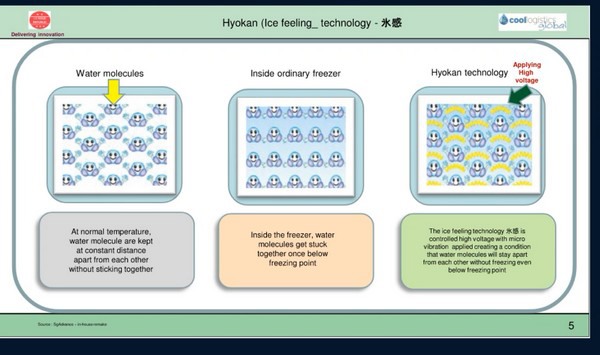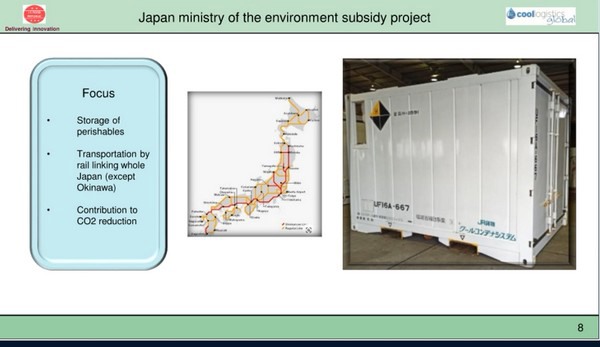On Thursday, the final day of Cool Logistics 2020, the first speaker on the topic 'Rethinking cold chain nodes & modes to market' was a well known face at the conference: Albert Cheung Founder, JC Food Republic, Hong Kong. He spoke about the Japan Reefer on Rail project and the future of rail technology. The technology in Japan has evolved and there has been a pilot test of the Hyokan container on JR railways.
Hyokan technology – The "ice feeling" in English – is controlled by high voltage with micro vibration applied creating a condition where water molecules will stay apart without freezing even in below zero temperatures. This can maintain freshness by adding special electrostatic energy safely and stably to the ice storage chamber. The unit can be moved from truck to rail without disrupting the cooling process. It is battery operated so it can used remotely and is charged by a generator.

The project is subsidised by the government with a focus on the storage of perishables and transportation around the whole of Japan while contributing to the reduction of CO2.

Sofie Tolk, Cluster Development Manager, at SOHAR Port and Freezone, Oman, spoke about the challenges and developments in the GCC (Gulf Cooperation Council) region, which has a 60-70% dependency on food imports. The region imported 55 million tonnes of food last year just through ocean freight. Imports to the region far outweigh the exports.
70% of food sales are done at retail level but online sales are growing.
The region aims to reduce food imports and has projects for industrial vertical farming and national food production. They also have a national reserves program to have six months worth of food stores.
The cold chain needs further development, said Sofie, “More cold storage is need as are logistical services, there is a lot of food waste creating high prices. Supermarkets also need to look at packaging and storage.”
The region will open it’s first state of the art cold store at the end of the year with 2400m2 of storage room, 20 units with a temperature range of between +10 to -20 degrees.










